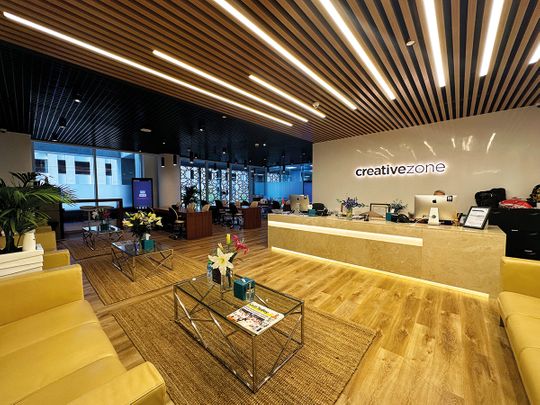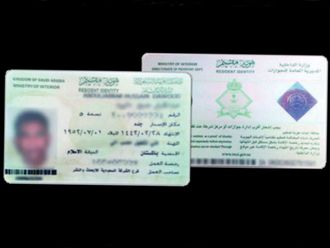
Creative Zone has been in the business of setting up business for more than a decade. What are the main reasons for the group expanding its core portfolio and adding services like citizenship and residency by investment, setting up Trusts, SPVs and Foundations and others?
In today’s increasingly volatile climate, many high net-worth investors across the globe are looking for a means to secure their future while accessing greater freedoms. With COVID-19 negatively impacting the global economy, and political unrest bubbling in many parts of the world, it has become abundantly clear that unpredictability may be the new normal.
This has encouraged global entrepreneurs and investors to look for a plan B. The main reason behind launching premier services is to preserve their assets, secure futures and build legacies. The premier services cover all these bases. We set them up with everything, including getting citizenship in the country of their choice, setting up companies, global corporate structuring, creating Trust, Foundations and SPVs, and providing expert global tax advice.
There is an increase in demand to establish Foundations, Trusts and SPVs, why do you think this is?
The UAE has seen a growing trend in the formation of trusts and foundations in recent years due to the country’s growing wealth and the desire to protect assets from potential creditors or litigants. Additionally, the UAE has a relatively stable political and economic environment, making it an attractive location for individuals and families to establish trusts and foundations for estate planning and wealth management. Furthermore, the UAE has developed a legal framework for trusts and foundations that is in line with international best practices, which has helped to further boost their popularity.

The UAE has a relatively stable political and economic environment, making it an attractive location for individuals and families to establish trusts and foundations for estate planning and wealth management.
Having a dual citizenship is gaining immense popularity for many Middle Eastern entrepreneurs and investors. Why and how exactly does it help them?
In the current global scenario, a phenomenon like tighter visa control, travel bans, and immigration issues have become a reality. Apart from having political connotations, all such episodes are big barriers for entrepreneurs who need to access a wider global market, frequently travel overseas and expand their businesses. These restrictions are often more severe for certain Middle Eastern and African nations; hence, getting a dual passport for businessmen from these countries helps greatly.
Another big reason is the enormous business advantage they get, the EU passport gives you the freedom to trade in any of the EU’s member states, and it is estimated that this gives businesses operating there access to nearly 500 million customers. There is much greater freedom of movement between European states.
For instance, a Portuguese citizen can travel without a visa or get a visa-on-arrival in 172 countries. With second citizenship in many Caribbean countries, you can travel to over 130 countries visa-free around the world. Tax benefits, financial freedom, long-term security, and better life prospects are some of the most significant reasons more entrepreneurs from these regions are going for alternate citizenship.
How should one choose the correct Citizenship by Investment Programme and what are the different ways to get them?
Choosing the correct Citizenship by Investment Programme (CIP) depends on the individual’s specific needs and circumstances. Some factors to consider when selecting a CIP include the processing time, investment requirements, and benefits offered. There are several ways to obtain citizenship through investment; the most common ones are- Real estate investment; this option involves investing in government-approved property development and holding the investment for a certain period.
Another is Government bond investment which requires one to invest in government bonds or funds, typically for a period of 5-7 years. The most popular amongst entrepreneurs and investors is investing in a business or an economic development project. Philanthropic donations are another way of getting citizenship. It requires one to donate to a government-approved fund or project.
Each country has specific requirements and benefits associated with its CIP, so it’s essential to research and compare different options to find the best fit for you. It’s also recommended to seek professional advice from a citizenship and residence planning expert.
What is the UAE NextGenFDI initiative all about? How did the partnership between the government body and Creative Zone come about and what does this collaboration hope to achieve?
NextGenFDI program is one of the most impactful initiatives by the UAE’s government that aims to attract digitally-advanced companies into the UAE market and develop the next generation of technology-based companies, and we are honoured to be trusted by the Ministry of Economy to partner on this ambitious national project.
NextGenFDI will support the growth of the nation’s knowledge-driven economy, and we will contribute by enabling rapid incorporation processes to speed up licensing; facilitating the issuance of bulk or golden visas; accelerating banking services; and providing commercial and residential lease incentives for advanced technology companies seeking to relocate to the UAE.
The initiative will continue to adopt a wide array of measures in phases to simplify the market entry process and make it more efficient for companies.
As an industry leader in the business setup advisory space, what are the challenges you foresee for entrepreneurs hoping to call the UAE home in the coming years? How can Creative Zone play a supportive role here?
So much work is being done to support the growth of small and medium-sized businesses, and there is still a lot to be done. Limited access to mentoring, funding and networking are still one of the many challenges entrepreneurs face, and our accelerator and incubator programmes like StartupX and She Leads were a step in resolving those issues.
Since the launch of these accelerators, we have provided extensive training workshops, educational seminars and networking opportunities to more than two hundred entrepreneurs and startup owners.
Going into 2023 and in your view, which 3 sectors in the UAE hold promise for entrepreneurs looking to set up business and why?
Technology will be number one on my list because, with a growing number of tech startups and a supportive government, the technology sector in the UAE is ripe for innovation and growth.
UAE’s E-commerce sector grew leaps and bounds last year, and owing to high penetration of internet and mobile usage, the UAE offers a large and growing market for e-commerce businesses. Third would be tourism and hospitality; the country became a safe and excellent vacation spot beating some of the world’s most popular destinations.
Share your growth plan over the next 2 years.
We are building our capabilities to provide specialised support to SMEs, providing expertise specifically tailored to the needs of SMEs. Over the years, we have struck multiple partnerships and referral agreements that serve SMEs in accomplishing their business goals. Our single-window portals like Setup In Abu Dhabi, NextGenFDI and a few others in the pipeline are all centred towards supporting SMEs & startups either by making flexible pricing for them, building a team of experts that understand their needs completely and ultimately making them see the value in setting up a business in the UAE.











_resources1_16a30b3523c_small.jpg)

